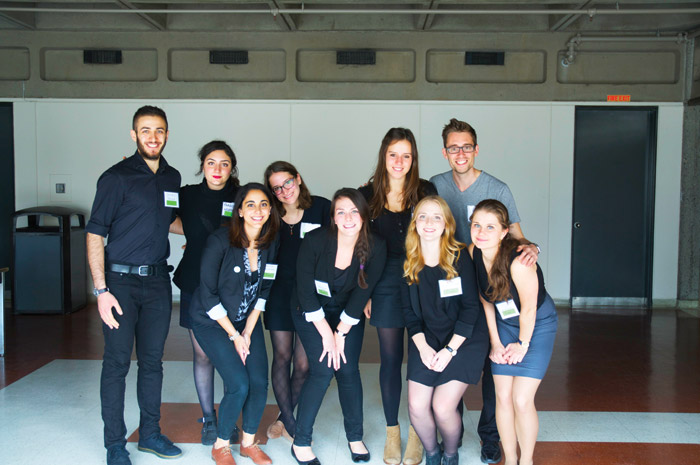The second annual Students in Mind conference took place on Sunday, Oct. 5, and aimed to address the stigmas and concerns surrounding mental health. Through a series of workshops, panels and speakers, the event, which was attended by around 80 people, aimed to create an environment where mental health could be discussed openly and without fear of judgment.
According to Danny Jomaa, student and head of sponsorship at Students In Mind, the conference aimed to address mental health on three levels: The individual level, which was the main target, the peer level, and across campus.
“Many people know it’s good to have a strong mental health, but when it comes up in conversation, people don’t like to talk about it,” Jomaa said. “So this conference is to get it out in the open. We want to tackle the personal stigma that people have, as mental health tends to be a taboo subject, so it’s therefore not given a lot of attention.”
Jomaa described how this issue was addressed following a 2013 study conducted by Manager of Student Assessment Lina Di Genova and Manager of Counseling Dr. Vera Romano, which highlighted the prevalence of anxiety and thoughts of suicide amongst McGill students. This study is seen by the student committee as a huge step towards improving student well being.
A panel discussing mental health within a campus context included four panelists: Dr. Nancy Low, assistant professor in the Department of Psychiatry; Elizabeth Cawley, PhD student in the Department of Psychiatry; Claire Stewart-Kanigan, VP university affairs of the Students’ Society of McGill University (SSMU); and Tanja Beck, access services advisor at the Office for Students with Disabilities (OSD). All panelists believed that McGill places a higher pressure on students due to its reputation as a highly competitive university and its status as a research-based school. The expectations associated with this perception creates a norm of unhealthy habits, such as all-night sessions in the library and substituting healthy food for coffee during exam periods.
Stewart-Kanigan acknowledged McGill’s recent improvements on the subject of mental health, but noted some structures that restrict the university’s capability to address it.
“There are some exam policies that say it’s all right to have three exams within a 24-hour period before you can declare a conflict—and that’s not a reasonable expectation,” Stewart-Kanigan said. “We’re trying to do a lot of work on more academic advocacies. When you are going through things like that, bring your testimonies to us because we can push [for] these changes.”
Stewart-Kanigan also noted that it was not just structural changes that need to be made, stating that there is also a strong competitiveness amongst students with regards to study hours. She emphasized that students need to make each other more comfortable and consistently remind themselves of how their study patterns are affecting them.
As a keynote speaker, Anthony Di Cintio described his own account of struggling with depression, explaining that opening up was the first step to recovering. He stated that counselling, written reflections, and having a mental health crisis protocol helped immensely.
“Never allow yourself to say ‘I don’t have the time’ […] because it’s precisely in the moments you say this that you should be making time,” Di Cintio said. “You should recognize and appreciate all that you have accomplished thus far. It’s important to remind ourselves not just to look for [praise] outside, but remind ourselves of our accomplishments and that we chose to be here.”
While addressing the stigma associated with mental health issues, Di Cintio admitted to fearing backlash in his professional career from speaking out, but hoped that his openness on the topic would encourage employers to look beyond the stigma, and see the strength it takes to discuss it.
“When it comes to public advocacy for anything, there’s always a risk of it shooting back in your face, but if no one speaks up, then no one will talk,” Cintio said. “I like to believe that if anyone’s going to choose me out there for a job, they’re going to see how powerful and encouraging it is that someone had the guts to do this.”
Laura Heath, a first-year master’s in psychiatry student at McGill, praised the efforts of the conference, and encouraged others to attend similar events in the future.
“I think the conference itself has been helpful. I like how the [Self-Care Workshop] focused on working on you as an individual,” Heath said. “In terms of the campus, though, I feel like the [Student Strategies for Mental Health] panel brought up key insights of the stressful nature that McGill [has]. You can see there are people trying to create a better culture on campus in terms of mental health.”
McGill Mental Health Services is available to all McGill students and is located in the Brown Student Services Building.








